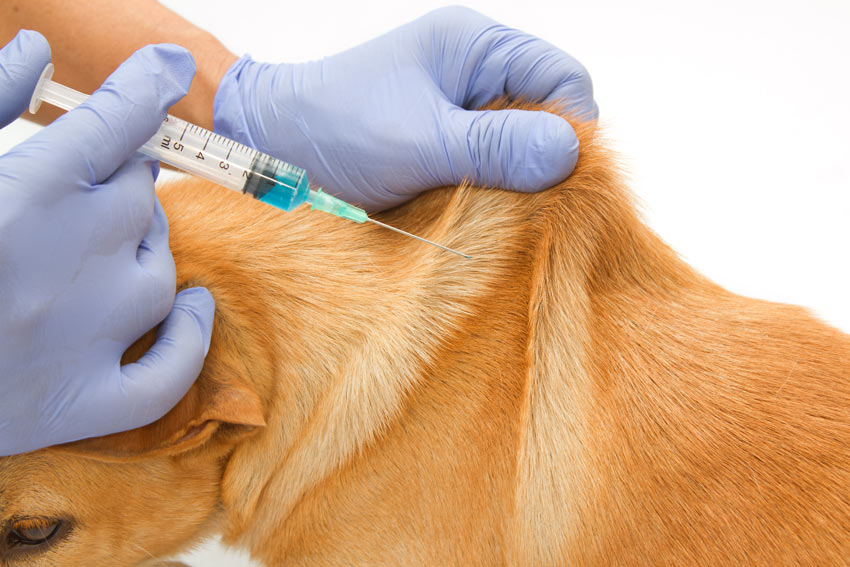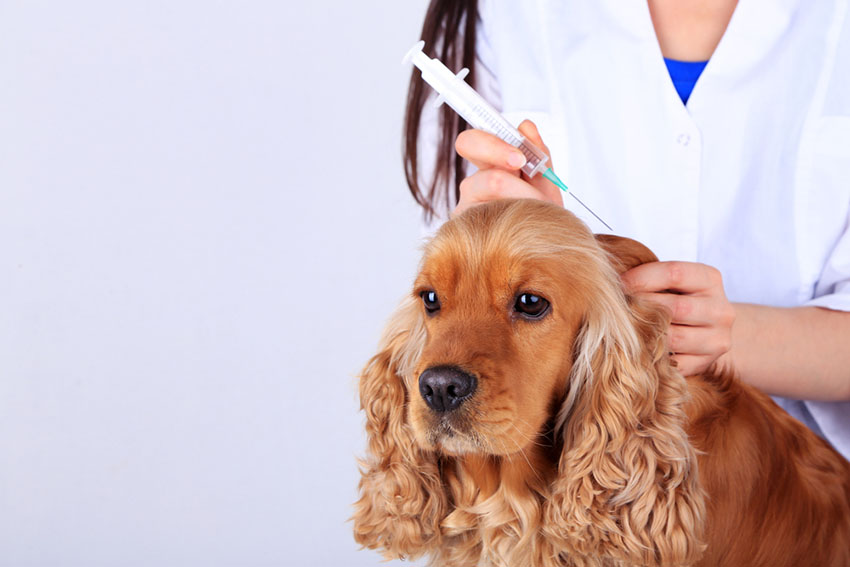
All dogs need vaccinating during the first few weeks of their lives to protect them from diseases such as distemper, hepatitis, parvovirus, leptospirosis and kennel cough. If you have adopted an older dog, he should have a medical history which you can show to you vet. If there’s no medical history, your vet will need to examine him and start from scratch.
Later on in life your puppy will need to have booster vaccinations to make sure he remains immune from diseases. Your vet will help you sort out a schedule for these boosters when you have your puppy or adult dog checked out for the first time.
Vaccines are the only proven method of protecting against these diseases, which is why it is very important to get your dog vaccinated at the correct time.
What Do Dog Vaccinations Protect Against?
Vaccines protecting against the following viruses are “core” – that is, they are administered to every dog as a matter of law.
- Rabies
- Canine Distemper
- Hepatitis (Canine adenovirus-2)
- Canine parvovirus
These vaccines are non-core, i.e. optional, but are recommended as protecting dogs from exposure to these diseases:
- Kennel cough (Bordetella)
- Lyme disease (Borrelia burgdorferi)
- Leptospirosis
- Canine coronavirus
- Parainfluenza
The following are sometimes administered in certain situations, but are not widespread, and not considered essential for most pet dogs:
- Coronavirus
- Giardia lambla
- Rattlesnake vaccine (Crotalus atrox)
Your vet will occasionally recommend other vaccines too. Always talk this through, to make sure you understand what the vaccine is and why the vet thinks your dog should have it.
When Should You Get Your Dog Vaccinated?
Puppies of the same litter will need vaccinating around the same time. During the first few weeks of your puppy’s lifetime, his Mom’s milk will give him partial protection from diseases. However, when he starts weaning, he will need vaccinating.
Puppies should not be separated from their mother until at least 8 weeks. By this time the puppy should already have been given his first vaccines, with more at around 12 weeks and 16 weeks. Your vet will advise you on this, and will usually administer a combination vaccine, protecting against the main viruses.
Arrange a general health check appointment for your puppy as soon as you bring him home so that you can check where he is in regard to vaccinations.
Follow the instructions from your vet regarding all this, as instructions and recommendations may vary for different breeds, sizes and health problems. However, here is a general overview to give you an understanding of a dog vaccination schedule.
When Should Your Dog Receive Booster Vaccinations?
Your dog needs booster vaccinations so that it has long lasting immunity from harmful diseases. When faced with infection, your dog is in danger of developing a harmful disease if his booster vaccinations are not up to date. It is important that you arrange the first booster shortly after his initial set of vaccinations.
How Are Vaccinations Given To Dogs?
Most vaccinations are administered via an injection through the skin at the scruff of the neck. The vaccine for kennel cough is usually administered as a nasal spray, although there is an injection available too, as some dogs find the spray uncomfortable.
Vaccination Side Effects
It is very uncommon for vaccinations to cause any side effects. If you are at all worried then you should discuss any health concerns with your vet. However, it is important to understand that protection from potentially life threatening diseases hugely outweighs the small risk of developing any side effects.





Comments
There are no comments just yet